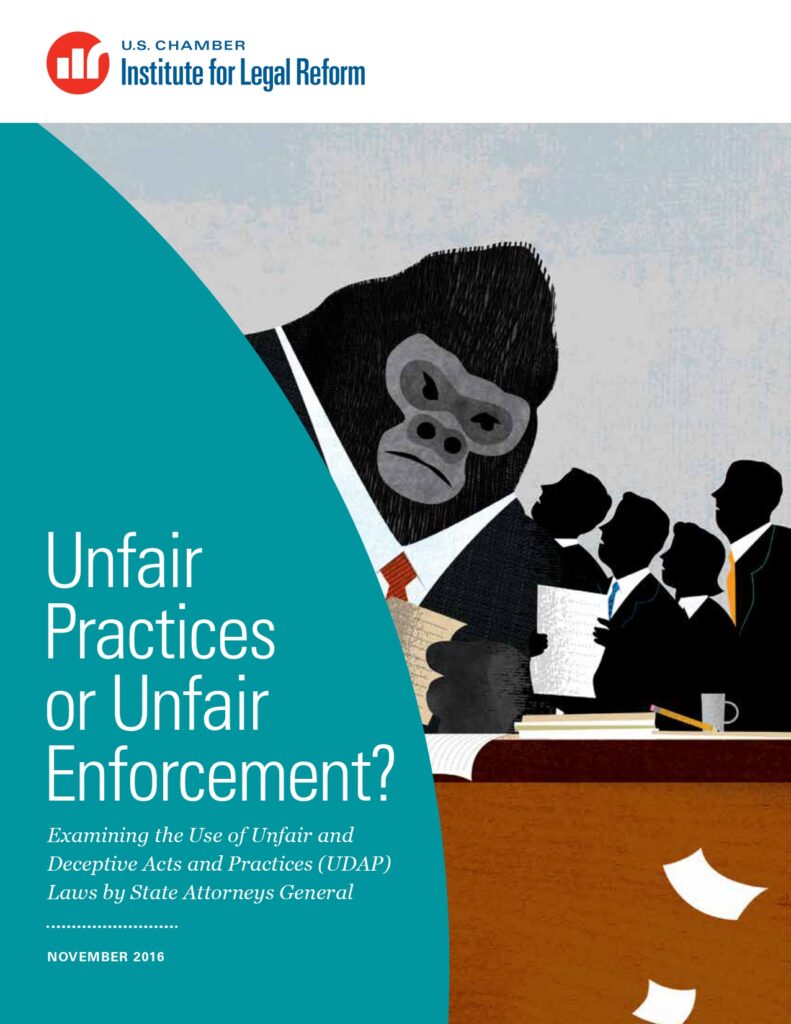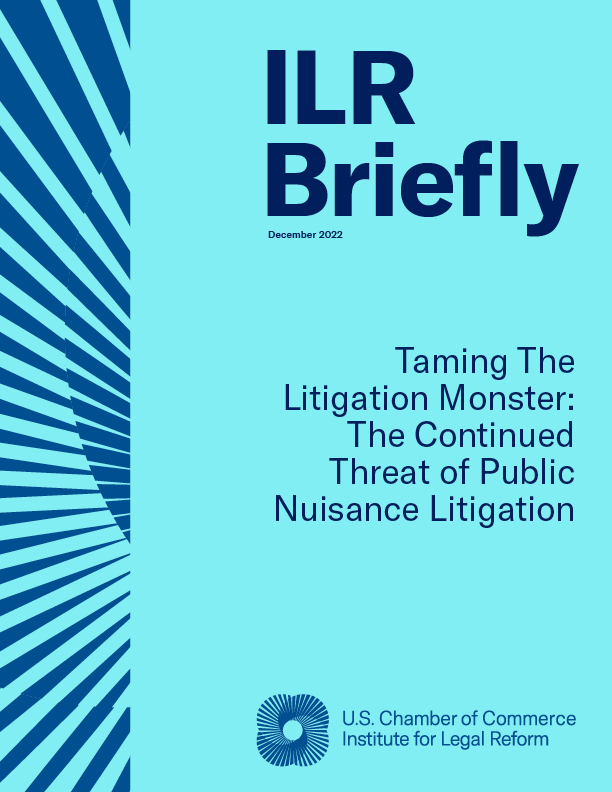Unfair and Deceptive Acts and Practices laws (UDAPs) are among the most important legal tools that states have when it comes to protecting their consumers. Unfortunately, state attorneys general (AGs) and private litigants are increasingly harnessing UDAPs to pursue their own national and (in some cases) international policy agendas. In so doing, these actors chill economic activity by creating uncertainty, hinder access to desirable products for consumers, offend due process rights and bedrock principles of federalism, and ultimately divert resources away from the essential purpose of UDAP laws—protecting consumers.
ILR’s research traces the evolution of UDAPs from their creation in the second half of the 20th century, describes their general functions and the dangers of loosely defining their scope, and documents how in recent years state AGs and private litigants have used UDAPs to regulate business activities, pursue policy agendas, and/or punish politically disfavored activity—even if it is otherwise lawful.
The paper concludes by proposing a set of primarily state legislative solutions to curb this trend and ensure that these critical consumer protection tools are not relied upon for political purposes and in ways that threaten core legal and constitutional rights, undermine the rule of law, and deprioritize consumers.


